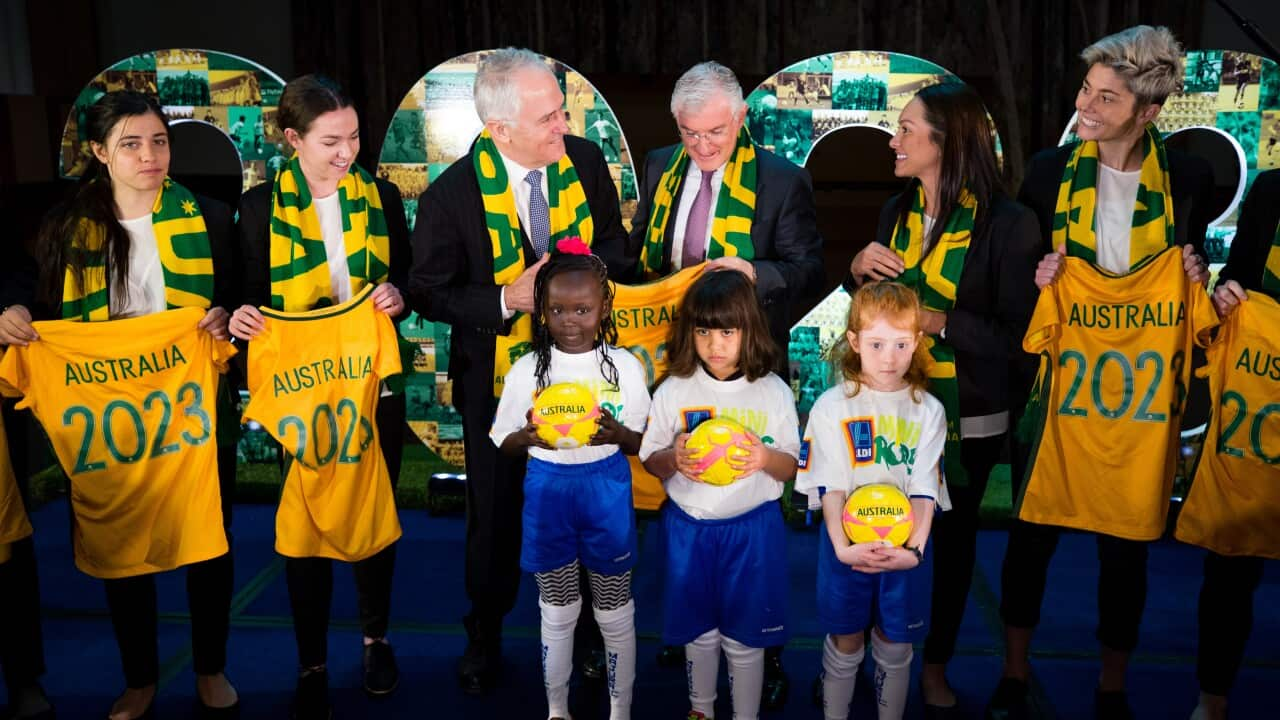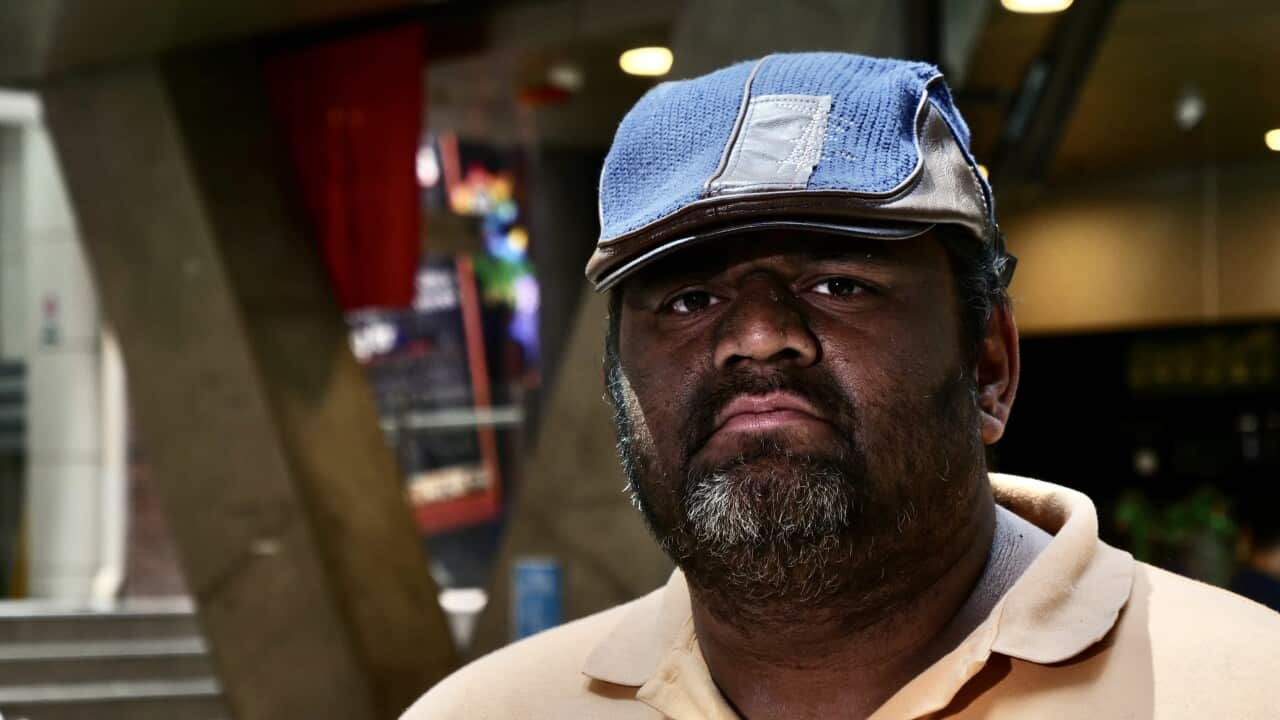Qatar, the first Middle Eastern nation to host a FIFA World Cup, faced over issues including the treatment of its migrant workers, women and gay people before and during the men's 2022 football tournament.
And when Australia co-hosts the next one - the alongside New Zealand in July and August 2023 - human rights experts say it too will face exposure on the world stage.
“What we will see when the world spotlight turns on Australia, and when you have hundreds of international journalists come here, they will ask about the most pressing human rights issues facing our country,” said Human Rights Watch Australia researcher Sophie McNeill.
Director of the Australian Human Rights Institute at UNSW Justine Nolan agrees. Sport is “intimately connected with human rights,” she said, and major sporting events are a “useful way” to both raise awareness of issues and advocate for progress.
“Australia will come under the same spotlight for different reasons.”
Here are some of the areas that could face scrutiny.
Just as came under international scrutiny in Qatar - with labour reforms - there are “serious questions” around the “severe labour exploitation” of some migrant workers in Australia, Professor Nolan said.
In March last year, a report claimed some migrant workers on Australian farms were being
"This isn't the Australian way. We need to do much, much better and we need to address this now," Prime Minister Anthony Albanese - then in opposition - said in response.

Australian Minister for Sport Anika Wells and FIFA President Gianni Infantino at the FIFA Women's World Cup draw in October. Source: Getty / Harold Cunningham/FIFA
“So there's questions around wage theft ... but also whether these systems are basically forms of modern slavery.”
Research published by the University of Newcastle and Australian Catholic Religious Against Trafficking in Humans in November found systemic exploitation of migrant workers was a problem across Australia.
“They’re particularly vulnerable due to factors like access to secure employment, unrecognised qualifications, low English literacy, access to affordable quality housing and lack of access to in-country knowledge about workers’ rights and conditions,” lead author Justin Ellis said.
The government is currently undertaking a review of the 2018 Modern Slavery Act which is due to be completed in March 2023.
2. Treatment of Indigenous people
Australia is one of the few countries still without a treaty with its Traditional Owners of the land.
Indigenous rights advocate and academic Larissa Behrendt AO delivered the Australian Human Rights Commission's 2022 Human Rights Day Oration earlier this month and reflected on "what human rights really means for First Nations peoples in Australia, particularly in relation to the criminal justice and child protection systems".
"For First Nations, the system is broken," the Eualeyai/Kamillaroi woman said.
For First Nations, the system is broken.- Larissa Behrendt, Indigenous rights advocate
The Australian government’s latest showed inequalities between Indigenous and non-Indigenous Australians are worsening in areas including the rates of Indigenous children in out-of-home care and Indigenous adults who are incarcerated.
Aboriginal and Torres Strait Islander people represent just over but account for in Australia's adult prison population. There have been since a royal commission into the issue was held in 1991.
"I assert that every death in custody that occurs due to a failure to implement the recommendations of the Royal Commission into Aboriginal Deaths in Custody is a preventable death," Professor Behrendt said.
The age of criminal responsibility in Australia - which disproportionately affects Indigenous children - is also subject to ongoing debate, with advocates lobbying state and territory attorneys-general to raise it to at least 14, the minimum age recommended by the United Nations.
In December, the Northern Territory became the first jurisdiction in Australia to raise the minimum age of criminal responsibility from 10, increasing it to 12 years old.
"First Nations people are the world’s oldest living culture and we did not have a prison on this Country until 1788," Professor Behrendt said. "There were no orphans, there was no homelessness. Turns out, this was a sustainable system for over 80,000 years."
“The failure to address the historic injustice against First Nations people in Australia and the continued injustices that remain today is a massive stain on Australia's human rights record,” Ms McNeill said.
Australia's Labor government - which returned to power in May after nine years - has made establishing a for First Nations people a signature project of its first term of government, with a referendum on the proposal set to be held in 2023.
3. Detention of asylum seekers
In January, tennis superstar over his refusal to get vaccinated against COVID-19 put the nation’s controversial asylum seeker processing policies in the global spotlight.
Djokovic was placed in immigration detention alongside asylum seekers at Melbourne’s Park Hotel. The previous month, SBS News revealed asylum seekers there had complained of , claims that were subsequently reported by international media including the BBC following Djokovic’s detention at the same facility.

Three asylum seekers gesture to protesters from the Melbourne hotel room where they were detained in June 2020. Source: Getty, AFP / William West
“There's obvious questions around what we are achieving by that policy,” Professor Nolan said. “Why we are doing this, what's the purpose of it, is it effective, and should we be looking to other methods such as community detention or community assessments.”
In its October budget, the government poured an into the maintenance of offshore processing centres and plans to spend $632 million on offshore processing in 2022-23.
4. Inaction on climate change
In a landmark decision in September, the UN Human Rights Committee found Australia had failed to adequately protect Torres Strait Islanders against the impacts of climate change and had violated their rights to enjoy their culture free from arbitrary interferences with their private life, family and home.
The impacts of climate change will be “the biggest human rights issue that we're going to see in our generation,” Professor Nolan said, and Australia is at a “crucial turning point”.
Australia is one of the world’s biggest exporters of fossil fuels and has also been singled out as one of the worst countries for deforestation and biodiversity loss.
“We have to actively make that connection between our own actions and our own exports, and the impact on people's life and health and rights and move much more aggressively in terms of reducing emissions.”
Labor's climate bill passed parliament in September which meant new targets - including a 43 per cent emissions reduction by 2030 and achieving net zero by 2050 - would be enshrined in law.
5. Crackdowns on protesters
In December, received a 15-month prison sentence from an NSW court for staging a protest that blocked traffic on the Sydney Harbour Bridge.
Human Rights Watch is “incredibly alarmed”, by the sentence handed to the “peaceful climate protester”, Ms McNeill said.
“We believe that climate protesters in Australia and climate activists are being targeted with disproportionate sentences and punishments for political purposes, and that's not acceptable. It's damning.”

Australia and New Zealand will co-host the FIFA Women's World Cup in 2023. Source: Getty / Shaun Botterill/FIFA
“The feedback from the courts was [Coco’s protest] was a disruptive, inconvenient act. Well that's really what protests are, and we allow protests in law in Australia, but what we're starting to do is narrow what we define as lawful protest.”
Australia is one of the only Western democracies without a national law enshrining human rights such as a Human Rights Act, charter or bill of rights. At the state and territory level, Victoria, Queensland and the ACT are the only jurisdictions with laws specifically protecting human rights.
While Australia has ratified many major international human rights treaties, a federal Human Rights Act would be both “substantive and symbolic” and “provide a mechanism to ensure rights are protected”, Professor Nolan said.
Human Rights Acts are “not just a hypothetical, they provide concrete protections to how we live our lives,” Ms McNeill said.
A chance for a positive legacy
With several openly gay players in women's football - unlike in the men's game - and both Australia and New Zealand laws supporting same-sex relationships and marriage - unlike Qatar - the 2023 tournament also has an opportunity to create a positive legacy around LGBTIQ+ rights and in other areas.
Speaking last month, Australia’s Minister for Sport Anika Wells said: "Qatar’s hosting of the FIFA World Cup has provided opportunities to promote meaningful reform in human rights which we hope will continue beyond the tournament."

Tameka Yallop of Australia and Paige Satchell of New Zealand after the announcement of the 2023 FIFA Women's World Cup hosts in 2020. Source: Getty / Phil Walter
"The face of football really is changing. It is traditionally a male-dominated sport, but there are more and more people like me who are involved at the highest level in FIFA, and our confederations and in our member associations as well. Things are really, really changing. And the sport and the progress is incredible to see," she said.
"It's this big moment that we have once every four years ... to showcase all the unique and incredible values that come in and around the women's game.”
Festival 23, a series of community programs launched by Common Goal and Football United, will also be held in Australia during the Women's World Cup
"We consider Festival 23 as the vehicle to a social legacy through football - talking about positive social change, community engagement, climate change, inclusion - it's a social impact,” Football United founder Anne Bunde-Birouste told SBS News last month.

The FIFA Women's World Cup mascot Tazuni and dancers perform during a ceremony in Auckland in October. Source: Getty, AFP / William West
The government "continues to work to improve Australia’s human rights record ...[including] stepping up on Indigenous rights and representation, strengthening our response to modern slavery, action on climate change, and addressing structural barriers to gender equality".
The government will soon appoint an Ambassador for Human Rights.
The last Women's World Cup in France in 2019 reached more than one billion spectators in 205 countries worldwide.
“If you as a host nation are taking on a major event and gaining the benefits of that event, then it's also a call to do some housekeeping,” Professor Nolan said.
Would you like to share your story with SBS News? Email














